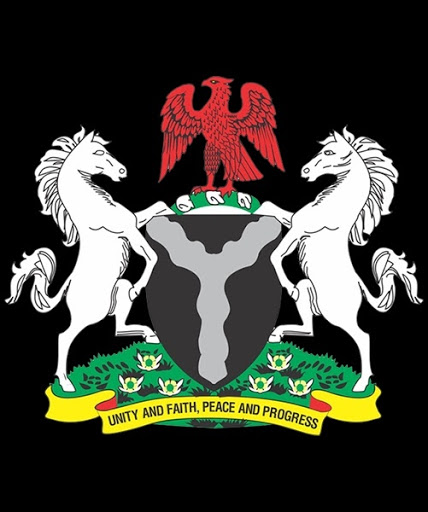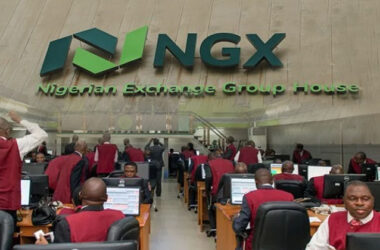Nigeria’s sports sector is not only a source of national pride but also an untapped goldmine with immense economic potential. The rise of the global sports industry has showcased the power of sports in fostering economic growth, creating jobs, and driving social development. In a country where football is often viewed as a unifying force and other sports like basketball, athletics, and boxing are gaining ground, there is an urgent need to explore the commercial opportunities within this dynamic industry.
The Growing Sports Landscape in Nigeria
The love for sports in Nigeria runs deep, with football being the most prominent. From local leagues to international competitions like the FIFA World Cup and the Africa Cup of Nations, Nigerian footballers have consistently showcased their talent on the global stage. However, beyond football, other sports are gaining significant traction. Basketball, for instance, has seen a rise in popularity, with the Nigerian men’s and women’s teams, the D’Tigers and D’Tigress, performing impressively on the international scene.
Additionally, sports like athletics, boxing, and table tennis continue to generate interest, with Nigerian athletes excelling in global competitions. The success of these sports personalities highlights Nigeria’s potential to become a sporting powerhouse, yet the country’s sports business remains largely underdeveloped.
The Untapped Business Opportunities
The sports business in Nigeria offers a wide range of opportunities across various sectors, including sponsorship, broadcasting, merchandise, sports tourism, and infrastructure development. Globally, sports leagues generate billions of dollars in revenue, with sponsorship deals and media rights forming the backbone of these earnings. Nigeria, with its large and youthful population, presents a fertile ground for similar growth.
Sponsorship and Endorsements
Corporate sponsorship is a key driver of revenue in sports worldwide. From brands partnering with athletes to businesses sponsoring major sports events, the opportunities for brand visibility are immense. Nigerian companies are increasingly recognizing this potential, with major brands like Guinness, Globacom, and MTN sponsoring local sports teams and events. However, the country still lags behind in securing the kind of high-profile international endorsements that could significantly boost the sports economy.
Broadcasting and Media Rights
The sports broadcasting sector is another area ripe for growth. While international media companies like Supersport and ESPN cover major African sporting events, there remains a gap in local content production and distribution. Investing in local sports broadcasting channels could boost revenue for sporting organizations and provide a platform for athletes to gain greater exposure. In turn, this would increase advertising revenue and attract more viewers, both locally and internationally.
Sports Merchandise and Licensing
Nigeria’s vast sports fan base offers a huge market for sports merchandise and licensed products. Fans are willing to spend on jerseys, caps, shoes, and other memorabilia to show support for their favorite teams and athletes. Currently, much of this merchandise is imported or produced without official licensing, leading to lost revenue for sports clubs and athletes. A well-structured merchandise licensing system could create new revenue streams and contribute to the local economy by boosting the manufacturing sector.
Sports Tourism
Sports tourism is another lucrative area that remains largely underexplored in Nigeria. International sporting events, such as the World Cup or the Olympic Games, attract millions of visitors to host countries, contributing significantly to tourism revenue. Nigeria’s rich sporting culture, combined with its vibrant cities and tourist attractions, positions it as a potential destination for hosting regional and international sporting events. Investments in sports infrastructure and facilities could transform Nigeria into a hub for sports tourism, driving economic growth in the hospitality and travel sectors.
Challenges and the Way Forward
Despite the enormous potential, Nigeria’s sports business faces several challenges that have stunted its growth. Inadequate infrastructure, lack of funding, and mismanagement within sports organizations are some of the key hurdles. For Nigeria to fully capitalize on the opportunities within the sports industry, there must be strategic investments and reforms at various levels.
Improving Infrastructure
The development of world-class sporting facilities is essential for attracting international events and boosting local sports participation. Many of Nigeria’s stadiums and training centers are either outdated or poorly maintained. Public-private partnerships could play a pivotal role in revitalizing these facilities, ensuring they meet global standards.
Creating a Sustainable Business Model
Nigeria’s sports sector needs a sustainable business model that integrates local and international best practices. This includes encouraging more private investment, setting up sports academies to nurture young talent, and creating viable revenue-sharing structures for athletes, clubs, and sporting associations.
Government Support and Policy Reforms
The government must also play an active role in fostering the growth of the sports business through favorable policies and incentives. Tax breaks for companies investing in sports, grants for budding athletes, and the establishment of regulatory frameworks to prevent corruption are vital to creating a thriving sports industry.
A Game Changer for Nigeria’s Economy
The potential of Nigeria’s sports business extends far beyond the pitch or the court. With strategic investments and reforms, the sector could become a major contributor to the nation’s economy, creating jobs, generating revenue, and showcasing Nigeria’s talents to the world. The sports industry has the power to drive economic growth, and for Nigeria, the game is just beginning. By taking bold steps today, the country can transform its sports sector into a global economic force that goes beyond the game.








